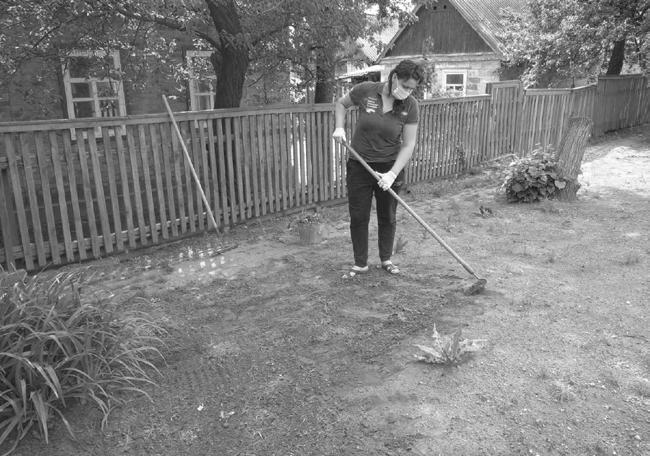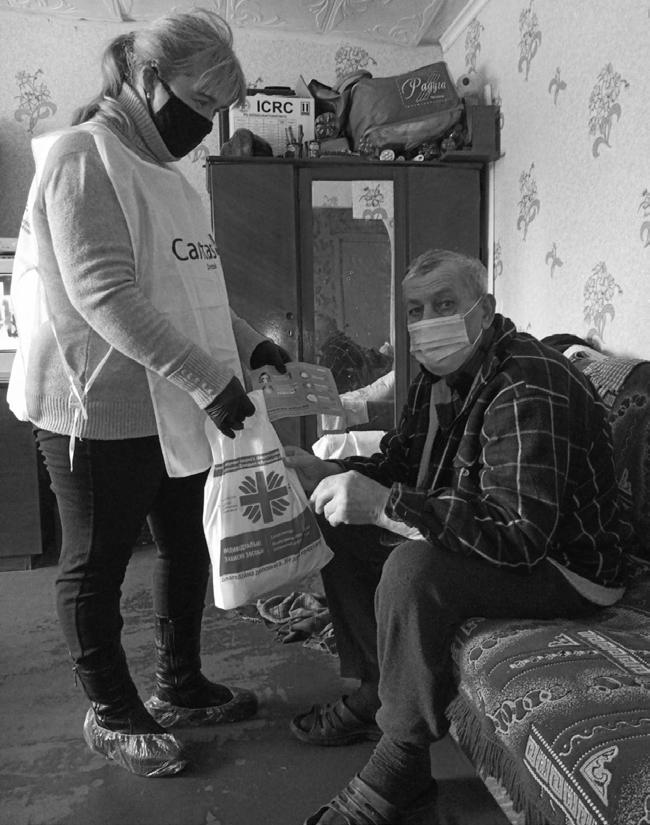ture and jobs in the public service sector. Furthermore, it could lobby for the need to increase the minimum wage in healthcare and education, thus contributing to greater economic equality for women, employed in these sectors (while the national minimum wage is determined in Kyiv, local authorities can supplement it by additional bonuses from the local budget). Our findings confirmed prior research on the Donbas frontline communities that the worldview of men in these communities is generally marked by life in an industrial region, and in interviews they insisted on the need to rebuild large industrial enterprises that can offer employment to several hundred people at once. Women, on the other hand, seemed somewhat more eager to engage in entrepreneurial activity, more adaptive and innovative in this regard. Positive aspects of patriarchal family structure with husband earning a living, and wife caring for children, elderly and ill family members, were highlighted in interviews and focus groups. Steps to gradually change such stereotypes can be effective (and all municipal and social workers interviewed showed awareness of the concept of gender and the need to combat gender inequalities). At the same time, however, support to women in traditionally feminine roles, should also be offered. The strengths of their gendered socialization related to greater empathy and commitment to the common good, are a valuable resource for NGOs to tap in and benefit from. Part-time employment by NGOs (again, mostly women), offers a source of income and valuable skills to gain confidence in further searches of employment. For instance, one woman in site 1, who was formally employed by a large international NGO, went on to set up her own local NGO, and has already applied for several successful grants on behalf of community, including repair of water wells, creation of a small gym, and purchase of an electric bike for social workers to distribute produce to their beneficiaries. Family-run (and mostly female-led) service provision in communities could be one of the ways to empower women, as it offers alternative income-generating activities in a patriarchal industrial setting, while being sensitive to “traditional” female roles of serving the community. In conversations with active women during field visit to site 1, some women argued in favour of small grants to start family-run businesses. In their view, even if this cannot solve the problem of unemployment, it can nonetheless benefit entrepreneurs’ families, and offer goods and services that are currently lacking in communities (hairdresser, pharmacy, photocopying services, etc) and contribute to intensification of trade (including agricultural produce exports).
Social services: Women as main beneficiaries of social service infrastructure
The worldview of men in these communities is generally marked by life in an industrial region, and in interviews they insisted on the need to rebuild large industrial enterprises that can offer employment to several hundred people at once. Women, on the other hand, seemed somewhat more eager to engage in entrepreneurial activity, more adaptive and innovative in this regard.
Part-time employment by NGOs (again, mostly women), offers a source of income and valuable skills to gain confidence in further searches of employment.
This study confirmed prior research on gender stereotypes about roles and functions of men and women in frontline communities. Men are still seen as “breadwinners”, and in the case of long-term unemployment are pressured to migrate in search of work. Women commit to the “service” roles of taking care of children, old-age and disabled relatives, as well as visiting all the social institutions on behalf of their household8. They are expected to sacrifice work if it is in conflict with other household duties: 8 For instance, such gendered division of roles was observed in all-Ukrainian survey of IDPs which led the authors to conclude, that “навіть змінюючи місце проживання, зайнятість та часто навіть при суттєвій зміні соціального статусу, гендерні ролі та стереотипи у стосунках, ставленні та очікуванні до поведінки чоловіків та жінок зберігається” http://gutszn.kr-admin.gov.ua/rivnist/gendernuy%20analiz.pdf
26








